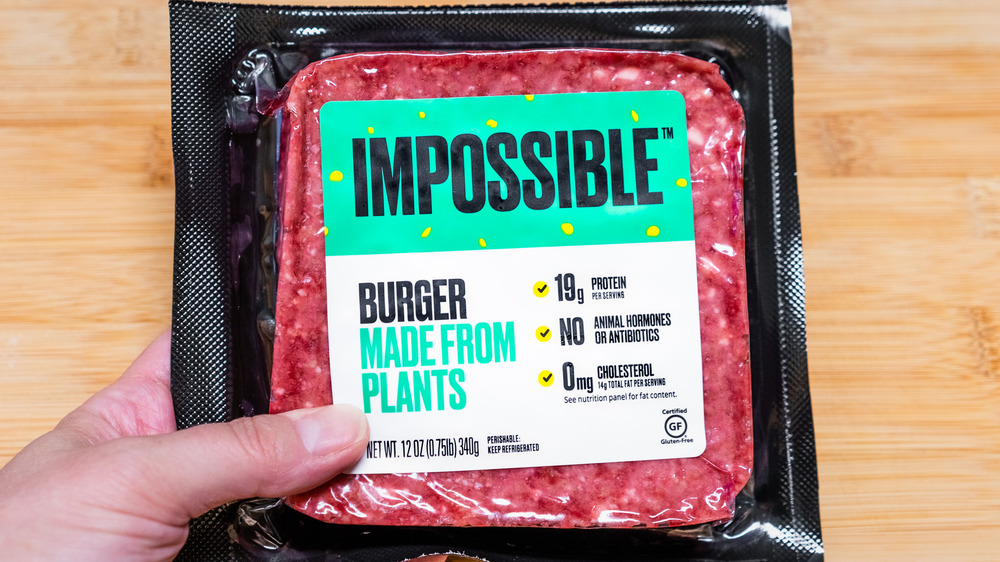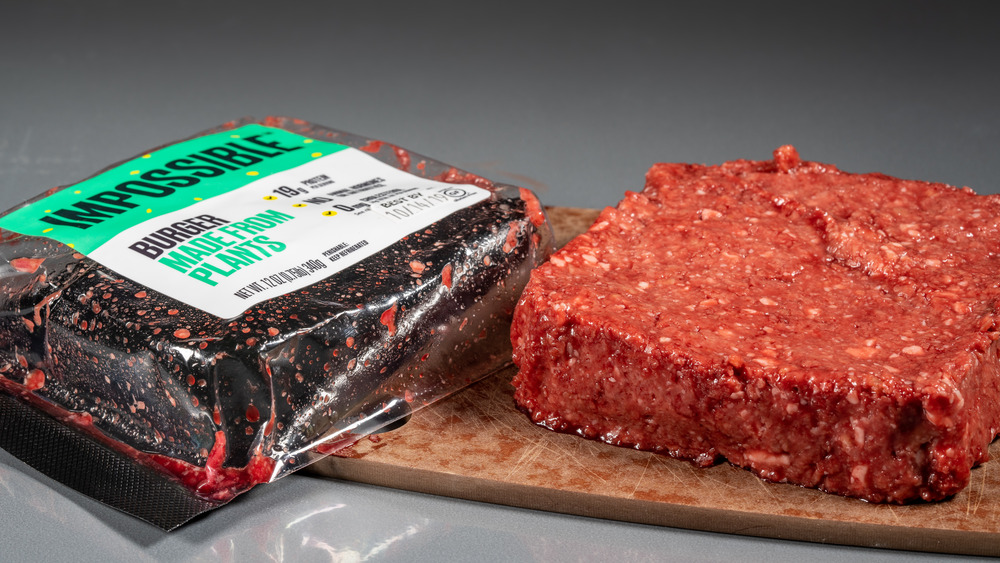Is It Really Safe To Eat Raw Impossible Meat?
Impossible Foods, a plant-based meat company launched in 2011 by Pat Brown (a geneticist and former Stanford professor emeritus of biochemistry), was founded in the hopes of off-setting the increasing strains being put on the environment due to the practices of the meat industry (via CNBC). Formulated specifically with meat eaters in mind, Impossible's concoction contains various plant-based ingredients that give it shockingly similar characteristics to red meat, from how it sears on a pan to how it "bleeds" after it has been cooked (per Business Insider). Yet, while there have been positive reviews for Impossible's "meat" once cooked, some have wondered whether it is safe to eat raw.
Fans of raw meat-centered dishes like Korean Yukhoe or Thai Laab will be pleased to know that Impossible's products not only can safely be eaten raw, but they also taste satisfyingly similar to real red meat, says Business Insider. In fact, Impossible Foods served its "beef" raw in the form of tartare at popular technology convention CES in 2019, marking the first time food was exhibited as a technology in the convention's history, according to CNET. The ingredient that gives Impossible "meat" such a shocking resemblance to its animal-derived counterpart, however, is also what most makes it the controversial (via Washington Post).
How does Impossible meat taste so similar to real red meat?
Impossible "meat" is made up of proteins, fats, and binders, plus varying spices and herbs for flavor — all of which the Impossible Foods website shares are plant-based. The protein in an Impossible burger is derived from soy and potatoes, and the meat alternative's realistic flavor and color comes from a molecule called "heme." Heme is an iron-carrying compound found in both plants and animals that gives meat its taste, texture, and hue, explains Forbes. And while it's derived from genetically-modified yeast, the heme used by Impossible Foods makes the plant-based meat so strikingly similar to real red meat that it has made some long-time vegetarians' stomachs turn (via CNET). While some concerns have been raised about the genetically-engineered ingredient, according to Vox Impossible Foods' use of heme is approved by the FDA.
The fat content in Impossible's "meat" is derived from coconut and sunflower oils, and two binders, methylcellulose and simple food starch, allowing it to be shaped into various forms that stick together, says Impossible Foods. According to Business Insider, a bite of raw Impossible meat delivers instant savory and umami flavors reminiscent of animal meat, though its texture is chewy instead of pasty like a pâté would be. Consumers should note that while Impossible meat is kosher and Halal-certified, it is not organic due to the genetically-engineered ingredients from the heme and soy protein (via Washington Post).

